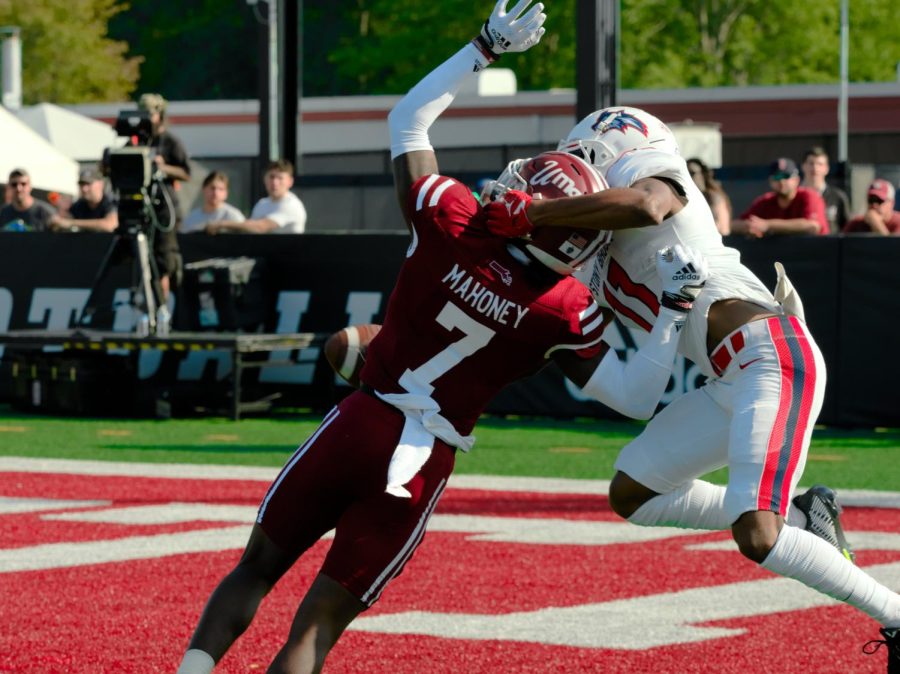The pandemic and remote academic year at the University of Massachusetts has imposed many new difficulties on students. Online schooling necessitated that some students stay home, most Registered Student Organizations met through Zoom and social interactions occurred on a much smaller scale than pre-pandemic years. This also meant that some students’ mental health was on the decline, and access to resources was more important than ever before.
A surveyof undergraduate students taken by UMass officials in the fall of 2020 found that 36 percent of students felt “nervous, anxious, or on edge.” Additionally, 23 percent reported that they felt “down, depressed, or hopeless” nearly every day, with 36 percent feeling that way several days.The survey also reported that 17 percent of students found coping with stressors much more difficult than usual.
When the survey was taken again this spring, the figures had: 34 percent of students felt “nervous, anxious, or on edge” every day and 21 percent reported that they felt “down, depressed, or hopeless” nearly every day, with 47 percent feeling that way several days. Finally, 22 percent of students found coping with stressors much more difficult than usual.
“The thing about being online this past year has just been a lot about the challenges that online learning presents that are not present in a usual learning environment,” said Michael Suchecki, a senior political science major and senator in the SGA. He found this year particularly difficult because he has taken only online courses since the COVID-19 pandemic caused UMass to shut down in March 2020.
Suchecki found that not having the same social element of being around people made him geared more towards self-reliance when he really wanted to be around other students. He also found particular issue with taking an asynchronous class, where he was not given a schedule to hand his assignments in, as they all had one end-of-semester deadline.
“I looked at the [the deadlines], I watched the first lecture and I crumbled. I was like ‘I can’t do this.’ So, I dropped the class,” Suchecki said.
Although he was struggling with being online, Suchecki did not use any on-campus student resources from the Center for Counseling and Psychological Health. His decision was shaped by his knowledge that the student capacity at CCPH was already full during a normal year, and that “[CCHP] can’t afford to have more interest, they can’t afford to have more need right now.”
“I feel that I can handle my sort of challenges and anxieties around classes and work and kind of other stressors in my life well enough that I don’t want to be taking that resource away from people that need it more,” Suchecki said. “Until the administration starts, you know, prioritizing mental health of students more, there is no fix for it.”
Sean Vo, a senior legal studies major, philosophy minor and the special assistant to the president on mental health for the SGA this previous semester, focused on bringing mental health to the forefront the University’s concerns.
“My motivation to bring mental health front and center to all of SGA came from me experiencing the death of a friend back in March of 2020,” Vo said. “That was the perspective shift that I needed to see that I need to focus on my mental health in order to be a better student, person and friend.”
Vo spoke on mental health issues that he faced and how the lack of mental health support affects certain people on campus.
“CCPH’s ability to deliver specific support to, say, a student of color or a student in the LGBTQ+ community, was not as efficient as the cultural centers that are able to do so,” he said, citing an Commonwealth Honors College thesis that a colleague of his published in spring 2020. “So, an LGBTQ+ student would have found better mental and emotional support from [the] Stonewall [Center] rather than from CCPH.”
Amongst the hundreds of UMass RSOs, there is a club on campus that is working to fight the stigma around mental health. Christine MacCune is the president of Active Minds, a club she describes as “an open space for people to come in and have a conversation that a lot of people aren’t willing to have outside of this group about important topics like suicide, mental health and things like that.”
Since the club is run by students, it does not offer therapy or sessions like CCPH does. “We pride ourselves on being a supportive group, but not a support group because none of us are licensed clinician workers or therapists,” MacCune said. “But we’re all going through similar things.”
In a normal year, Active Minds would host in-person group meetings and events. With students virtual this year, however, meetings were held through Zoom, and most of the conversations surrounded struggles people faced resulting from the coronavirus pandemic.
“A lot of people are struggling and just want to get things off their chest because we’re all isolated and don’t always have someone to talk to. And so being able to provide that space for people was really important for us,” MacCune said.
Along with working to de-stigmatize mental health, Active Minds also discusses the ways in which mental health is handled on campus. “I think there have been things implemented by the University that weren’t necessarily effective,” MacCune said.
“[Wellbeing] Wednesdays, for example, from my personal experience and from hearing other people, they weren’t effective, and they ended up being more stressful for people… So I think that was something that people struggled with,” she continued.
MacCune expressed that having a day off only twice in the semester in the middle of the week was a challenge particularly for her as a student, as she knew that she would still have work to do the next day and often, still have work pile up to the next week.
MacCune also addressed her thoughts about CCPH. “Help in recovery is not a short-term thing. Yet, the help that CCPH provides is short term . . . They’re helpful in the moment during panics and during crisis times for people,” she said. “But there is a lack of consistency and a lack of… long-term care for people on campus.”
With all of the difficulties they faced during the pandemic, there were some positives to the move to online for Active Minds. MacCune stated that meetings became more accessible to students and made it easier for those struggling with the online format and home life to just hop on to their computer and join the conversation.
“You can do it in your bedroom or wherever you are, rather than having to physically move to somewhere,” MacCune said.
Talya Torres can be reached at [email protected].



















